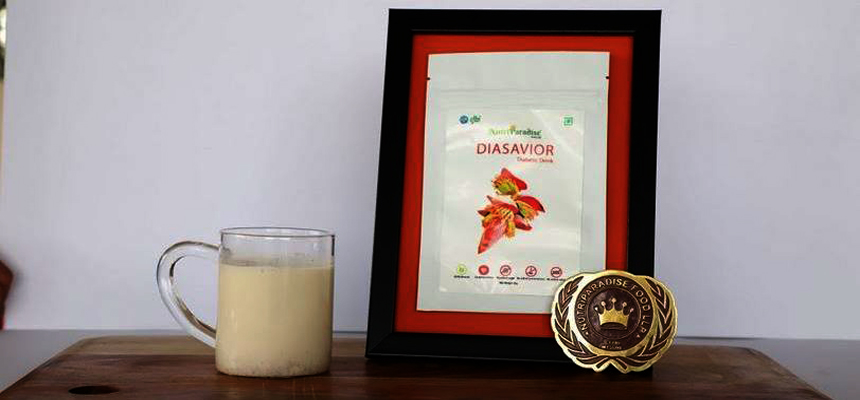What's Really Happening Inside Your Body? The Diabetes Story No One Tells You

Let's start with a question
Close your eyes for a moment. Can you feel your heart beating? Your blood flowing? Your nerves firing?
Now imagine if I told you that millions of Indians are walking around right now—going to work, cooking dinner, playing with their kids—while their bodies are quietly under siege. And many of them have no idea.
Here's the reality check: In 2023, researchers discovered that 101 million Indians are living with diabetes. But wait—it gets more unsettling. Another 44 million have it and don't know yet. That's 145 million people total. And 136 million more are teetering on the edge with prediabetes.
If current trends continue, we're looking at 134.2 million diagnosed cases by 2045.
Quick reality check - could this be you?
•Do you feel unusually thirsty lately?
•Are you tired all the time for no clear reason?
•Have you noticed tingling in your feet?
•Are cuts taking forever to heal?
If you're nodding yes, keep reading. This might be the most important article you read this year.
So What Exactly Is This "Silent Killer"?
Think of your body as a city. Glucose (sugar) is the electricity that powers everything. Insulin is the power grid that delivers that electricity to every building (cell).
In Type 1 diabetes: The power plant shuts down. No insulin produced. The city goes dark.
In Type 2 diabetes: Either the power plant is failing, or the buildings have faulty wiring and can't receive the power. Same result—electricity (glucose) backs up in the streets (bloodstream), and the city starts malfunctioning.
The Invisible War Inside You: What's Really Happening
Here's what most people don't realize. Every day with uncontrolled diabetes, your body is fighting multiple battles:
Battle #1: Your Blood Vessels Are Under Attack
Imagine your blood vessels as smooth highways. High sugar levels are like sandpaper, scraping the inside walls with every heartbeat. Over time:
•Vessels narrow (imagine lanes closing on a highway)
•Blood flow slows (traffic jam in your body)
•Organs start starving for oxygen
Real-world impact: That chest pain? That's your heart screaming for help. Those blurry vision moments. Your eyes aren't getting enough blood flow.
Battle #2: Your Nerves Are Dying (And You Might Not Feel It)
This is the creepy part. The tiny blood vessels that feed your nerves start failing. First, you feel tingling—like pins and needles. Then comes pain. Then... nothing. Numbness.
Why this is terrifying: You could step on glass and not know it. A small cut becomes an ulcer. An ulcer becomes an infection. An infection becomes amputation.
Battle #3: Your Immune System Is Sabotaged
High blood sugar is like kryptonite to your white blood cells—your body's defense army. They slow down, get confused, stopworking effectively.
The consequence: That small scratch that should heal in days? It takes weeks. That minor infection? It becomes serious fast.
Battle #4: Inflammation Is Everywhere
Excess sugar triggers your body's alarm system—chronic inflammation. It's like your entire body is constantly on high alert, wearing itself out, aging faster than it should.
The Domino Effect: Watch How One Problem Becomes Ten
Let me paint you a picture of what happens when diabetes goes unchecked. This isn't fear-mongering—this is what doctors see every single day:
•Your eyes: Between 4.8% and 21.7% of diabetics develop retinopathy. Your retina bleeds, vision blurs, cataracts form. Some people wake up one day and can't see their grandchildren's faces anymore.
•Your heart: You're 2-4 times more likely to have a heart attack or stroke. Why? Those damaged blood vessels we talked about? They're everywhere—including around your heart and brain.
•Your kidneys: Up to 62.3% experience kidney problems. Your kidneys are trying to filter blood with damaged filters. Eventually, they give up. Then it's dialysis or transplant time.
•Your feet: This is where it gets really serious. Poor circulation + nerve damage = a recipe for disaster. Nearly 45% develop neuropathy. Every year, thousands of Indians lose toes, feet, or legs to diabetes.

Dr. Rohini Kasturi
Consultant Endocrinology
STAR Hospitals Nanakramguda
•Your mouth: Ever wonder why some people suddenly have terrible gum disease? High blood sugar feeds bacteria in your mouth like fertilizer on weeds.
•Your mind: Here's what rarely gets discussed - diabetes increases your risk of depression, anxiety, Alzheimer's, and dementia. It's not just your body that suffers; it's your mental clarity and emotional well-being too.
•Your intimate life: Nerve damage and blood vessel problems don't discriminate. Sexual dysfunction affects both men and women with diabetes—a topic many are too embarrassed to discuss with their doctors.
But Here's the Plot Twist: You Can Rewrite This Story
Everything I just described? It's preventable. Seriously.
The difference between these two scenarios is simply this: action.
Scenario A: You Do Nothing Different
•10 years from now: Blurry vision, possible retinopathy
•15 years: Early kidney disease, heart problems
•20 years: Significant complications, reduced quality of life
Scenario B: You Take Control Today
•10 years from now: Stable blood sugar, minimal complications
•15 years: Still active, healthy, enjoying life
•20 years: Proving that diabetes doesn't have to win
Your Action Plan: What Actually Works
•Stop guessing about your blood sugar. Check it regularly. Track patterns. Knowledge is literally life-saving here.
•Eat like your life depends on it (because it does). Load up on fiber, vegetables, whole grains. Cut the refined sugar and processed foods. Every meal is either medicine or poison—choose wisely
•Move your body—no gym membership required. A 30-minute walk after dinner can lower blood sugar more effectively than you'd imagine. Dance. Garden. Play with kids. Just move
•Take your medications seriously. Missing doses isn't "no big deal." It's the difference between controlled diabetes and complications
•Get checked regularly. Eye exams, kidney function tests, foot examinations. Catch problems when they're small and fixable, not when they're big and life-threatening.
•Quit smoking. Period. If you smoke with diabetes, you're basically pouring gasoline on a fire. Your blood vessels can't take both hits.
Why Integrated Care Changes Everything
Here's what traditional diabetes care looks like: See your doctor occasionally. Get prescriptions. Maybe check your blood sugar. Hope for the best.
Here's what comprehensive care looks like: A team of specialists working together—endocrinologists, nutritionists, cardiologists, ophthalmologists, mental health professionals—all coordinating your care, catching problems early, adjusting treatment proactively.
STAR Hospitals' multidisciplinary approach brings cutting-edge diagnostics, personalized treatment plans, lifestyle guidance, and complication prevention under one roof. It's the difference between managing diabetes and mastering it.
The Bottom Line: This Is Your Wake-Up Call
Right now, as you're reading this, your body is either moving toward health or toward complications. There's no neutral ground with diabetes.
The question isn't whether diabetes is serious. The question is: What are you going to do about it?
Because here's the truth: Those statistics about complications? They're based on people who didn't know, didn't act, or didn't have access to good care.
You know now. You can act now. And comprehensive care is available.
STAR Hospitals provides an advanced, multidisciplinary approach in Diabetes management. From cutting-edge diagnostics and tailored treatment plans to lifestyle guidance and complication prevention, every patient benefits from a holistic support system under one roof. This integrated model ensures not only effective diabetes management but also protection against the many health complications it can trigger, empowering patients to lead healthier, fuller lives.

 Disclaimer: Welthi.com does not guarantee any specific results as a result of the procedures mentioned here, and the results may vary from person to person.
Disclaimer: Welthi.com does not guarantee any specific results as a result of the procedures mentioned here, and the results may vary from person to person.









